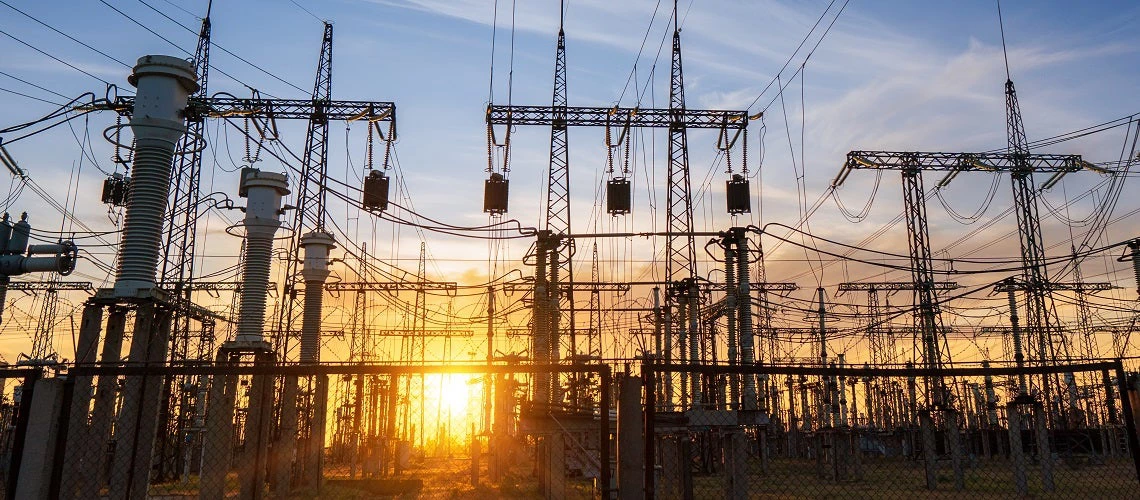 Power line pylons during sunset
Power line pylons during sunset
Across Europe and Central Asia Region (known as ECA), the coming winter will highlight a stark reality: many people may struggle to pay to heat their homes. Electricity and natural gas prices have spiked to unprecedented heights, especially in Europe. This is coupled in many countries with high inflation and rising food prices.
Prices of natural gas and wholesale electricity sky-rocketed in August and September 2022 and have since dipped (due to unexpectedly mild October and high storage levels). Further price volatility is expected when the weather turns cold this winter season. Energy prices could remain volatile and elevated until 2025, although significant uncertainties remain.
Many people are already facing difficult decisions around how to manage their household budgets and balance heating with other essential needs. Without adequate policy measures on energy costs, there is a real danger of deepening poverty, especially for vulnerable households. And already hit hard by the pandemic, small and medium enterprises, in particular are struggling with soaring utility costs.
Alongside the urgency for action on protecting people and businesses, the crisis has reinforced the need for an accelerated transition to low carbon and renewable sources of energy.
Globally, heating of households and industry typically represents around half of total energy consumption. Buildings alone account for around one-third of energy usage. Prior to the pandemic, energy use in buildings were also responsible for over 10% of global greenhouse gas emissions.
In many countries of Europe and Central Asia, this situation is exacerbated by highly inefficient district heating networks and poorly insulated, ageing building stock.
Overall, despite decades of investments including over US$1.3 billion by the World Bank in ECA since 2010, heating is not sustainable. Current systems consisting of home boilers, central heating and district networks remain heavily reliant on fossil fuels. In many cases, district heating and fuels are below cost-recovery levels, and often without proper consumption-based billing.
Individual boilers rely mostly on gas, coal, and firewood, and are often very inefficient and polluting. During the winter months, pollution levels in urban and peri-urban areas rise considerably with up to 90% of particulates such as PM10 and PM2.5 emanating from space heating, which are harmful to people’s health.
Energy poverty is closely tied to the problem of pollution. The proportion of citizens who have to spend 10% or more of their household budget solely on heating and lighting the home is significant. And as households are unable to afford heating, many report underheating in the winter months.
In Moldova and Romania, for example, the share of citizens who are energy poor is around 15% of the population, while in Albania, Kosovo and North Macedonia, more than 30% of households have reported being unable to adequately heat their homes. Citizens are thus forced to revert to dirtier fuels such as coal and firewood simply to stay warm.
For the coming winter, these challenges could be further complicated by a return to fossil fuels, already happening in some countries, as fears over energy security and affordability begin to outweigh decarbonization efforts.
What can countries do to address the immediate impacts of the energy crisis? There are several options:
Countries should try to reduce energy consumption. In the coming heating season, governments can launch awareness and behavior change campaigns to conserve energy. For instance, households can lower their energy use for heating, by lowering the thermostat by 1°C–2°C, resealing windows, washing clothes in cold water and something as simple as taking shorter showers. Subsidies, if needed, should be temporary, targeted and should not encourage overconsumption.
Utilities can launch demand-response programs to reduce the electricity consumption of larger customers and households, shift energy demand to off-peak hours, or use onsite generation. After the Fukushima tsunami in 2011, Japan’s national energy savings campaign, combined with rationing and quotas, reduced annual energy use by 15% almost immediately.
Governments can introduce fiscal measures and standards to support energy efficiency and cleaner heating. These measures can include incentives for building renovation such as insulation and more efficient windows, and cleaner heating appliances; the removal of subsidies and/or the introduction of new taxes for inefficient or dirty heating, and strengthened efficiency standards, including bans on very inefficient equipment. Poland’s Clean Air Priority Program, for example, which the World Bank is supporting, offers a combination of tax relief, subsidies, and financing to replace coal boilers and install insulation for more than 3 million homes. Building renovation programs, spurred in the EU by the Renovation Wave and Energy Performance in Buildings Directive, are already cost-effective and being scaled-up, and efforts are underway to promote deeper renovation and net-zero buildings in the years ahead. Ongoing World Bank-supported public building renovation programs (e.g., Bosnia and Herzegovina, Kazakhstan, Montenegro, North Macedonia, Serbia, Turkey, Uzbekistan) are now being scaled-up and expanded into the residential sector.
Governments should also develop sustainable heating strategies and roadmaps. The acute exposure of the heating sector to gas and the high dependence of heating on fossil fuels will require governments to develop sustainable heating plans and programs. These programs should help transition viable district heating networks from gas and coal to low-carbon heating fuels (e.g., biomass, geothermal, solar, biogas, and waste heat) through resource-mapping exercises. District heating systems that are not viable or do not have access to affordable, cleaner heating resources may have to be phased out. At the household level, traditional heating from firewood and coal will have to be phased out in favor of renewable energy and electric heat pumps. Several EU countries have imposed bans on gas boilers (e.g., UK, France, Germany, Austria) while many others are offering incentives and financing options such as heat pumps. This has resulted in a record of 2.2 million heat pumps sold in Europe in 2021, with heat pumps sales growing fastest in Poland, Germany, and the Netherlands. Demand for building renovations, heat pumps and rooftop solar are now growing rapidly in the Western Balkan, Turkey, the Caucasus, and Central Asian countries.
In a region where winters can be especially hard, there is no time to waste in taking strong policy actions that ensure people don’t have to choose between heating and other household expenses.
Related
Energy Crisis: Protecting Economies and Enhancing Energy Security in Europe and Central Asia


Join the Conversation